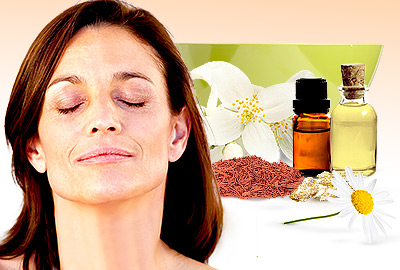Being ambushed by a sudden panic attack can understandably leave women filled with fear for their lives and desperately seeking reprieve. Fortunately, with adequate treatments for panic disorder, or recurring panic attacks, it is possible to restore emotional equilibrium and win the battle with panic attacks for good.
Continue reading to find out how are panic attacks treated so that you are equipped with knowledge to choose the best treatment approach that fits your emotional needs.
Three Approaches to Treating Panic Disorder
Women seeking panic disorder treatment can choose from among three approaches: (1) Lifestyle changes, (2) Alternative medicine, and (3) Medications. They are recommended to begin with the least risky options and proceed to more conventional, and often riskier, treatments only if necessary.
Lifestyle Changes for Panic Disorder Treatment

The first level of panic disorder treatment entails making healthier lifestyle adjustments, which carries the least amount of risk, but demands the most perseverance. Nevertheless, it can be a beneficial way to relieve panic attacks.
Nutritious Diet
The nutrients from food are needed for hormone and neurotransmitter production, both of which are necessary for mood regulation. As such, building a menopause diet around nutritious sources of complex carbs, healthy fats, and lean protein is a must in treating panic disorder. It is also worth adding the following nutrients:
- Phytoestrogens are plant-based compounds which may be beneficial in the treatment of panic disorder and other menopause ailments thanks to their mild estrogenic effects.1
Soy, flax, oats, cabbage, sesame, oats
- Probiotics may help treat panic disorder by replenishing the microbiome in the digestive tract and nourishing the brain-gut axis for neurotransmitter release and mood balance.2
Yogurt, kefir, sauerkraut
- Magnesium plays a role in mood regulation, and its deficiency can make women more prone to developing panic attacks and other types of anxiety disorder.3
Spinach, avocado, leafy greens, nuts, seeds
- Zinc deficiency may cause emotional dysregulation, including panic attacks, irritability, and depression, by lowering the levels of gamma-aminobutyric acid (GABA), a neurotransmitter that regulates mood and sleep.4
Pumpkin seeds, eggs, cashews, oysters, asparagus
Regular Exercise
Regular and well-adjusted exercise can be an invaluable tool in treating panic disorder. Numerous studies have found that being physically active can greatly alleviate stress, improve overall outlook on life, and regulate sleep, thus contributing to a reduction of the intensity and frequency of panic attacks.5
Amount: Women are advised to get 30 minutes a day, five days a week of moderate exercise or 15 minutes a day, five times a week of vigorous exercise.6 However, beginners can start with even five minutes daily.
Type: It is best to find enjoyable workout routines that combine cardio exercises with muscle-strengthening exercises. They can include brisk walking, dancing, swimming, yoga, and Pilates, among others.
Useful tips: To take advantage of the mood-boosting effects of sunlight, women are encouraged to include outdoor exercises in their regimen, such as attending a yoga class in the park, taking a long walk, or going for a bike ride.
Precautions: Since strenuous workouts can trigger anxiety, it is best to keep exercise intensity at a low to moderate level.
Wholesome Habits
Implementing good daily practices is a worthwhile complement to a healthy diet and regular exercise. They help strengthen the mind and distract it from anxious thoughts, make a woman feel more in control over her emotional health, and give the body the rest it needs to function properly. Consider the following recommendations:
Relieving stress regularly can prevent panic attacks and reduce their occurrence. The best practices to eliminate stress and bring calm include meditation, positive affirmations, yoga, or coherent breathing, among others.7
Keeping up with a regular sleep schedule is important for panic disorder treatment as studies have found that poor sleep can trigger and intensify panic attacks.8
Using relaxation-promoting herbs, like chamomile or valerian, in infusions or aromatherapy can help prevent over-worrying and anxiety. When drank before bedtime, they can improve sleep quality.
Finding a new hobby or joining a support group can occupy the mind with constructive thoughts, produce a sense of belonging, and help women feel confident and empowered to effectively treat panic disorder.
Quitting addictions like nicotine and alcohol are a must since both have been found to contribute to the development of panic disorder and anxiety as well as worsening of their symptoms.9,10
Alternative Medicine for Panic Disorder Treatment

The second-level approaches to how to treat panic disorder encompass a number of options, of which the most popular ones are herbal supplements. Besides being an easy regimen to follow, they are a highly beneficial one since they address the underlying root of menopausal panic attacks, hormonal imbalance.
There are two types of herbal supplements women treating panic disorder can consider: phytoestrogenic and hormone-regulating supplements.
Phytoestrogenic Supplements
Phytoestrogenic supplements, like ginkgo biloba, are rich in phytoestrogens, which are plant-based compounds that function like estrogen in the body. In the short-term, they can replenish estrogen levels and relieve panic disorder symptoms. However, their extended use is not recommended because they can make the body less capable of producing its own hormones, thus eventually leading to a further state of imbalance and worsening of symptoms.
Hormone-Regulating Herbal Supplements
Hormone-regulating supplements, like Macafem, do not supply the body with outside hormones. Rather, they contain beneficial compounds that stimulate the body's endocrine glands to improve their own hormone production, thus reducing the symptoms of an imbalance. They are considered one of the safest and most effective menopausal panic attacks treatments that can be taken for long-term relief.
From Nature and Health Magazine, Dr. Chacon says:
"Macafem's nutrients help restore natural hormones in women. Unlike hormone drugs, which are basically resumed in taking synthetic hormones, Macafem acts totally different in your body. It nourishes and stimulates your own natural hormone production by inducing the optimal functioning of the pituitary and endocrine glands." Click on the following link to learn more about Macafem.
Combining lifestyle adjustments with herbal supplements is often the most effective approach to balancing hormones and treating panic disorder. However, for women with severe panic attacks, it might be necessary to consider more conventional treatments, such as medications and psychotherapy.
Conventional Medicine for Panic Disorder Treatment

The third-level treatments for panic disorder tend to come at the highest cost and may involve serious side effects. However, they are a beneficial tool for women whose panic attacks prevent them from actively participating in daily activities.
The two types of conventional panic disorder treatments that can be considered include psychotherapy and medications.
Psychotherapy
Psychotherapy can be an effective treatment for panic disorder, but it requires a significant time commitment. It is often recommended before medication regimens, although it may also be done in conjunction with them.
Cognitive behavioral therapy (CBT) is the most commonly used panic disorder therapy. It consists of gradually desensitizing women to stimuli that triggers their panic attacks and helping them better cope with them.
Panic-focused psychodynamic psychotherapy (PFPP) helps resolve emotional problems or difficult experiences from the past that may have been the root cause of panic disorder development.
Applied relaxation is an effective panic disorder therapy, comprising mind-body techniques, such as progressive muscle relaxation, aimed at relieving symptoms and helping women manage panic attacks more easily.
Medications
Most medications for panic disorder relieve symptoms, instead of treating their underlying cause. Due to possible side effects, their use should be evaluated on an individual basis to make sure the cost does not outweigh the benefits.
Antidepressants, particularly selective serotonin reuptake inhibitors (SSRIs), are the first-line medications for panic disorder treatment. They work by balancing neurotransmitters in the brain responsible for mood.
Benzodiazepines - like alprazolam or clonazepam - are sedatives which belong to a class of drugs called anxiolytics that may be used to treat panic disorder.To prevent dependency, they are usually used short-term.
Anticonvulsants -such as valproate - are designed to treat epilepsy, but are sometimes prescribed off label for panic disorder treatment.
Hormone replacement therapy (HRT) contains estrogen, progesterone, or their combination. Once a popular treatment for panic disorder and other menopause symptoms, HRT's use has decreased in recent years and is mostly reserved for severe symptoms. As shown in the studies below, HRT has been found to increase the risk of serious side effects and health risks, including strokes and cancers.
The three levels of panic disorder treatment discussed above are not mutually exclusive, and women may naturally move between them at various stages of the menopausal transition. Nevertheless, many choose to rely on lifestyle changes and herbal supplements for a risk-free treatment that last.
A Safe Way of Treating Panic Disorder
Implementing Lifestyle Changes:
- Eating foods rich in phytoestrogens, probiotics, magnesium, and zinc
- Focusing on moderate exercises for 150 minutes a week
- Relieving stress with meditation, breathing techniques, and yoga
- Maintaining a healthy sleep schedule and finding a hobby
And Taking Herbal Supplements:
- Phytoestrogenic herbal supplements, like St. John's wort
- Or natural hormone-regulating supplements, like Macafem
Sources
- Anxiety and Depression Association of America. (n.d.). Exercise for Stress and Anxiety. Retrieved June 3, 2020 from https://adaa.org/living-with-anxiety/managing-anxiety/exercise-stress-and-anxiety
- American Physician. (1998). Panic Disorder: Effective Treatment Options. Retrieved June 3, 2020 from https://www.aafp.org/afp/1998/0515/p2405.html#sec-4
- Cognitive Behavioral Therapy. (2014). A Contemporary View of Applied Relaxation for Generalized Anxiety Disorder. Retrieved June 3, 2020 from https://www.ncbi.nlm.nih.gov/pmc/articles/PMC3797858/
- Dialogues in Clinical Neuroscience. (2008). The effectiveness of anticonvulsants in psychiatric disorders. Retrieved June 3, 2020 from https://www.ncbi.nlm.nih.gov/pmc/articles/PMC3181858/
- Harvard Health Publishing. (2016). Nutritional strategies to ease anxiety. Retrieved June 3, 2020 from https://www.health.harvard.edu/blog/nutritional-strategies-to-ease-anxiety-201604139441
- Mayo Clinic. (2017). Coping with anxiety: Can diet make a difference? Retrieved June 3, 2020 from https://www.mayoclinic.org/diseases-conditions/generalized-anxiety-disorder/expert-answers/coping-with-anxiety/faq-20057987
- Mayo Clinic. (2018). Panic attacks and panic disorder. Retrieved June 3, 2020 from https://www.mayoclinic.org/diseases-conditions/panic-attacks/diagnosis-treatment/drc-20376027
- National Institute of Mental Health. (2016). Panic Disorder: When Fear Overwhelms. Retrieved June 3, 2020 from https://www.nimh.nih.gov/health/publications/panic-disorder-when-fear-overwhelms/index.shtml
- Psychiatry Research. (2015). Fermented Foods, Neuroticism, and Social Anxiety: An Interaction Model. Retrieved June 3, 2020 from https://pubmed.ncbi.nlm.nih.gov/25998000/
Footnotes:
- Journal of Menopausal medicine. (2017). Effect of Phytoestrogen on Depression and Anxiety in Menopausal Women: A Systematic Review. Retrieved June 3, 2020 from https://www.ncbi.nlm.nih.gov/pmc/articles/PMC5770525/
- PLOS. (2018). The anxiolytic effect of probiotics: A systematic review and meta-analysis of the clinical and preclinical literature. Retrieved June 3, 2020 from https://www.ncbi.nlm.nih.gov/pmc/articles/PMC6010276/
- Nutrients. (2017). The Effects of Magnesium Supplementation on Subjective Anxiety and Stress – A Systematic Review. Retrieved June 3, 2020 from https://www.ncbi.nlm.nih.gov/pmc/articles/PMC5452159/
- Nutrition and Metabolic Insights. (2011). Decreased Zinc and Increased Copper in Individuals with Anxiety. Retrieved June 3, 2020 from https://www.ncbi.nlm.nih.gov/pmc/articles/PMC3738454/
- BMC health Services Research. (2018). Exercise in the treatment of clinical anxiety in general practice – a systematic review and meta-analysis. Retrieved June 3, 2020 from https://bmchealthservres.biomedcentral.com/articles/10.1186/s12913-018-3313-5
- American Heart Association. (2018). Recommendations for Physical Activity in Adults and Kids. Retrieved June 3, 2020 from https://www.heart.org/en/healthy-living/fitness/fitness-basics/aha-recs-for-physical-activity-in-adults
- Depression and Anxiety. (2012). Meditative Therapies for Reducing Anxiety: A Systematic Review and Meta-Analysis of randomized Controlled Trials. Retrieved June 3, 2020 from https://pubmed.ncbi.nlm.nih.gov/22700446/
- Anxiety and Depression Association of America. (n.d.). Sleep Disorders. Retrieved June 3, 2020 from https://adaa.org/understanding-anxiety/related-illnesses/sleep-disorders
- American Addiction Centers. (2019). The Connection between Anxiety and Alcohol. Retrieved June 3, 2020 from https://americanaddictioncenters.org/alcoholism-treatment/anxiety
- JAMA Psychiatry. (2003). Smoking Increase the Risk of Panic. Retrieved June 3, 2020 from https://jamanetwork.com/journals/jamapsychiatry/fullarticle/207565
- JAMA. (2002). Risks and benefits of estrogen plus progestin in healthy postmenopausal women: principal results from the Women's Health Initiative randomized controlled trial. Retrieved June 3, 2020 from https://www.ncbi.nlm.nih.gov/pubmed/12117397
- The Lancet. (2019). Type and timing of menopausal hormone therapy and breast cancer risk: individual participant meta-analysis of the worldwide epidemiological evidence. Retrieved June 3, 2020 from https://www.thelancet.com/journals/lancet/article/PIIS0140-6736(19)31709-X/fulltext



